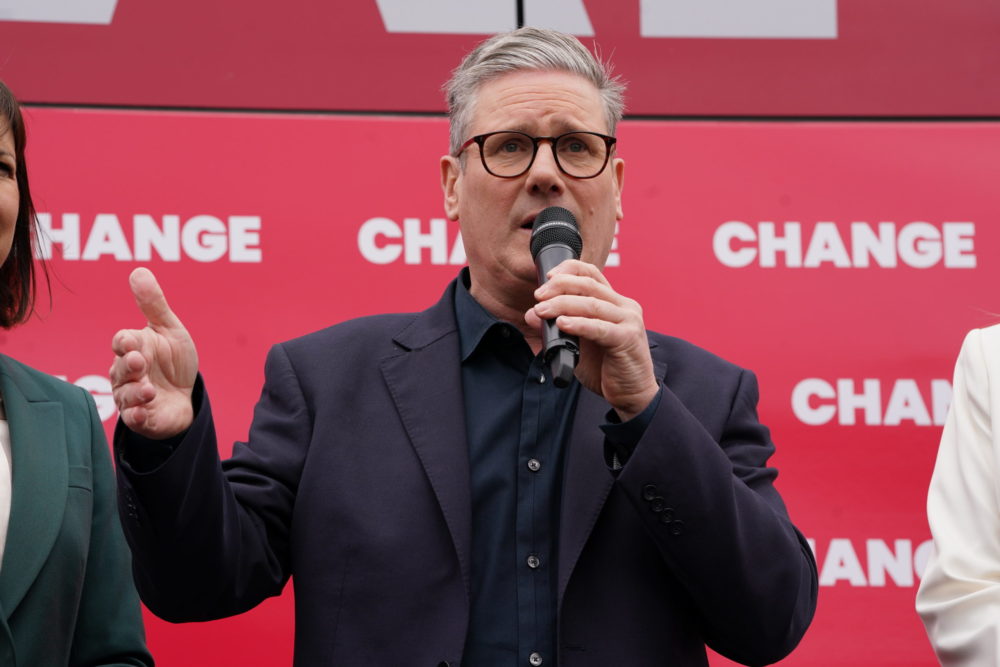Labour set to launch manifesto with focus on economy and green energy

Labour’s manifesto is expected to contain few surprises when the party releases the document on Thursday.
The launch comes at the end of a week of manifesto events as the parties set out their pitches to voters.
Speaking ahead of the launch, Sir Keir Starmer told reporters Labour’s manifesto will be a “serious, practical plan for the country” and the party has stressed there will be little in it that has not already been announced.
That means no tax rises beyond the three it has already set out – charging private schools VAT, abolishing the non-dom tax status, and closing “loopholes” in the windfall tax on oil and gas companies – and a pledge not to increase the rate of income tax, national insurance or VAT.
Six steps
Labour’s six “first steps” have featured heavily on the campaign trail so far and are likely to form the centrepiece of the manifesto as well, including plans to set up GB Energy, a state-owned company which would invest in renewable energy projects.
Green policies could be a large part of Labour’s offer, with a pledge to decarbonise the electricity grid and end sales of petrol and diesel-powered cars by 2030, but the party has rowed back from its original plan to spend £28 billion a year on green projects.
Economic stability, another one of the “first steps”, will also form a major part of Labour’s manifesto as the party seeks to paint the Conservatives as the party of economic chaos.
As well as a pledge to stabilise the economy, Labour is expected to include proposals for a new Office of Value for Money to scrutinise spending plans.
Focus
Shadow chancellor Rachel Reeves has repeatedly promised not to “play fast and loose with the public finances” as Labour attempts to shake off Conservative accusations that it would “bankrupt the country”, and to portray itself as a safe pair of hands in difficult economic times.
The other first steps are cutting NHS waiting lists by providing 40,000 new appointments per week, hiring 6,500 new teachers, cracking down on anti-social behaviour and launching a specialist Border Security Command.
On education, there is likely to be a focus on early years, with plans to create new nurseries by converting empty classrooms, rolling out breakfast clubs across the country, and supervised tooth-brushing sessions for young children to combat higher rates of dental decay.
Other policies set to be included in the manifesto are the party’s overhaul of workers’ rights, dubbed the New Deal for Working People, including the right to switch off, and curbs on zero-hours contracts, as well as a commitment to greater devolution of power away from Westminster.
On foreign policy, Labour has said it will keep backing Ukraine against Russia and support recognising a Palestinian state as part of a peace process in the Middle East.
The party has also said it will aim to spend 2.5% of GDP on defence, but has not put a date on reaching the target.
Support our Nation today
For the price of a cup of coffee a month you can help us create an independent, not-for-profit, national news service for the people of Wales, by the people of Wales.







I’d say Port Talbot has amply demonstrated that green energy and a thriving economy don’t exactly walk hand in hand.
If you really look at “green energy” there is actually no such thing do the research on what’s involved in the manufacture of wind turbines, solar panels, batteries for ev’s, nuclear energy, when the British Isles are covered in spinny things and sun catchers what will it be like to live here ?